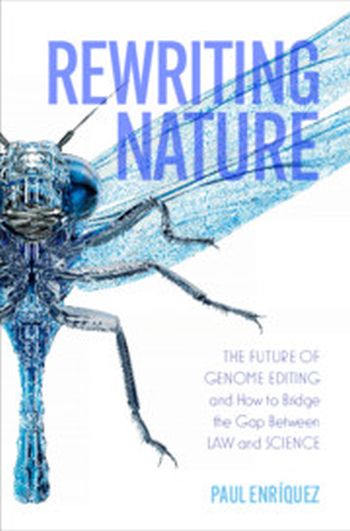We will be closed from 5pm Thursday 17th April for the Easter Bank Holidays, re-opening at 8.30am on Tuesday 22nd April. Any orders placed during this period will be processed when we re-open.

History will mark the twenty-first century as the dawn of the age of precise genetic manipulation. Breakthroughs in genome editing are poised to enable humankind to fundamentally transform life on Earth. Those familiar with genome editing understand its potential to revolutionize civilization in ways that surpass the impact of the discovery of electricity and the development of gunpowder, the atomic bomb, or the Internet. Significant questions regarding how society should promote or hinder genome editing loom large in the horizon. And it is up to humans to decide the fate of this powerful technology. Rewriting Nature is a compelling, though-provoking interdisciplinary exploration of the law, science, and policy of genome editing. The book guides readers through complex legal, scientific, ethical, political, economic, and social issues concerning this emerging technology, and challenges the conventional false dichotomy often associated with science and law, which contributes to a growing divide between both fields.